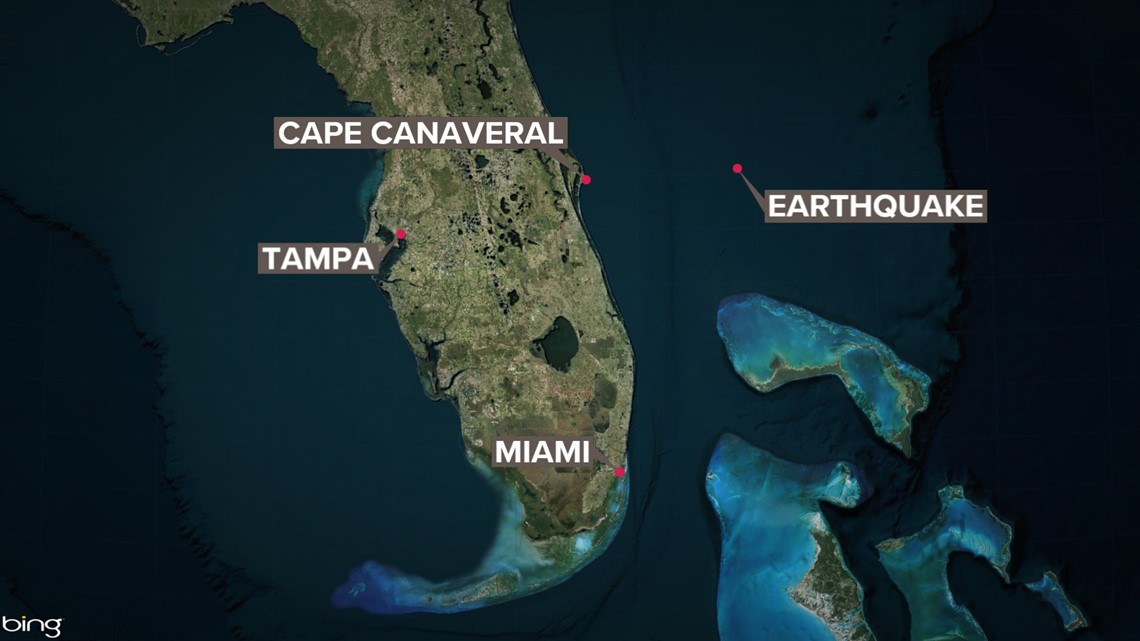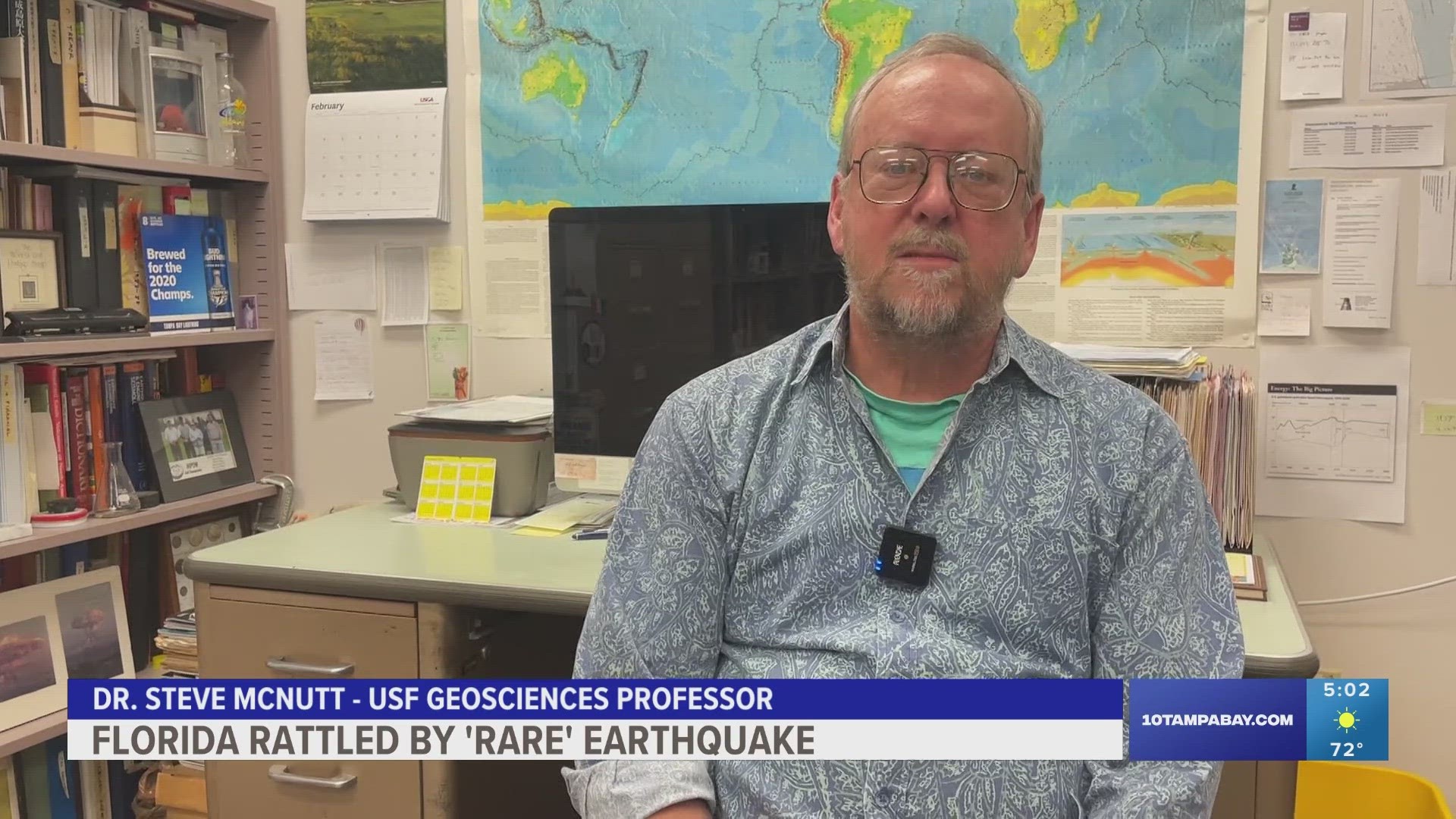CAPE CANAVERAL, Fla. — A magnitude 4 earthquake was recorded late Wednesday night off Florida's east coast, according to the U.S. Geological Survey.
It happened at 10:48 p.m. roughly 100 miles east of Cape Canaveral, USGS' website shows. As of this writing, at least 10 people reported weak to light-intensity shaking in areas including Melbourne, Palm Bay and Cocoa Beach.
Very few reports are anticipated; While a magnitude 4 quake can cause moderate damage, USGS data shows it was far off the coast and located about 6 miles underneath the ocean floor.
"This event is unique. It's kind of the largest event that we have off the coast of Florida and it's in a region where people are used to dealing with shaking, so that gets their attention," Dr. Paul Earle, a seismologist with USGS' National Earthquake Information Center, said.
The risk of earthquakes in Florida is very low, according to the Florida Department of Environmental Protection, making this event quite rare.
"Although seismicity is sparse we cant treat it like it's non-existent, there is a small background level. About one earthquake a year is pretty typical for Florida, but that can change and we keep learning more," Dr. Steven McNutt, a volcano seismologist and geosciences professor at the University of South Florida, said.


Since 2000, the USGS database shows only one other earthquake in this general region: a 3.3 magnitude quake recorded about 86 miles east-northeast of St. Augustine, Florida.
The last time folks in the Tampa Bay area felt shaking from an earthquake was 10 years ago when a 5.1 magnitude quake struck near Cuba.
Eight other reports of shaking — called "experimental explosions" — have been reported in this area, as well, though these were located above the sea floor and conducted by the Navy.
Earle says all indications right now point to this event being an earthquake.
An earthquake occurs when two blocks of the Earth suddenly slip past one another, according to the USGS. There is very little lead time ahead of an earthquake. If indoors, drop to the ground and hold onto something sturdy while covering your head and neck. It's also advised that people caught outdoors should stay outside and away from buildings.
Experts say it's a good teaching lesson, that people should prepare for earthquakes, as they can strike anywhere.
"We take these opportunities when they occur, to refresh our thinking and make sure our various plans are up to date," McNutt added.

